QuestionI wrote to Tami, who claims to know alllllllll about rat care yet could not answer my question, so maybe you can show me that you at least know what your talking about and help me.
I asked her this:
I have read your other answers and am puzzled about using amoxil in rats for respiratory infections. My husband is a Vet that treats small mammals and I also have raised rats myself so I am a bit curious as to how you can justify using amoxil rather than baytril when rats are born with mycoplasma, which only reponds to antibiotics that are capable of destroying the cell rather than the cell wall since myco lacks a cell wall? When, during treatment, do you decide that perhaps the rat has myco and amoxi will do absolutely nothing to help the rat? By the time that happens, the infection can be so strong that it is already causing damage to the entire respiratory tract including destroying the rats response to antibiotics in general.
She could not help me with that yet she claims to know what she is talking about. Perhaps you can enlighten me. Where did this Tami person come from? Can just anyone get on here to answer questions??????????????????
AnswerHi Amy
For starters, I am a bit uncomfortable with your accusations against Tami, another expert here. It isnt really very fair to judge her, as I do not know her at all, so I have no real legitimate claims against her. I have been out of town and am behind on many things. I may not agree with some of her advice, but to say she is clueless is a bit brusque.
Now, on to your question. Rat ailments can be very difficult to control, esp mycoplasmosis pulmonis. It is true that all rats are exposed to this highly contagious organism at birth and the bacteria is inactive until the immune system is compromised to the point that it challenges the bodys ability to fight off infection. Depending on many circumstances, the rat may begin to show signs of illness, starting off with sneezing or audible noises coming from the rat, usually sounding like a monkey or an owl. I have heard many ways to describe the sounds, but you WILL know it when you hear it. Myco is very very slow moving and also hard to kill unless the right medication is used. Concerning amoxil: This drug is a decent, medium grade broad spectrum drug used to treat many infections, strep is one of them. This drug attacks the cell wall of the organism head on to destroy it, as most antibiotics do. Mycoplasmosis is a complicated organism, so elaborate, it cannot be detroyed by just any antibioitc. It must be treated with an antibiotic that can destroy the cell itself, because this complex organism lacks a cell wall. There are only a handful of drugs that are made to to this, baytril is one of them, but amoxil is NOT. THe problem is, many vets are unaware of this and if they do not use baytril first and the rat has myco, this only allows the infection to manifest itself deeper into the rats respiratory tract. The longer the rat is sick, the more damage is done to the rats delicate lungs. Another problem is that many vets do not understand the importance of treating myco for the proper duration. This drug is NOT to be teased. Doing this only allows the drug to grow stronger and cause more damage. The rat should be treated for a full 30 days on baytril (for rats under 4 months, zithromax should be used)
Often the rule of thumb is to evaluate the status of the rats progress on antibiotics on the third day. If things are the same or even worse, its time to change the meds. However, you cannot do this safely when dealing with myco. The sooner it is treated, the better. Giving it the three day test is just not going to cut it!!
So, without taking samples, you cannot tell if the rat has myco or another organism causing the illness. The smartest thing to do is treat it like myco using baytril but use another drug for secondary infection. I would never suggest amoxil as the first choice. I have seen many rats come in to the clinic on deaths door and the owner and the rats previous vet had given up on the rat, saying that they did all they could. The problem was, they did not have clue what they were dealing with and not once was the rat given baytril. After a week in the hospital, baytril being adminstered via nebulization, the rat recovered, but died a few months later from complications from lung disease. The lungs (as per the necropsy) were scarred and in fact if I recall, one lung was even partially collapsed. All of this may habe been prevented of course. Please read over my site, sandyscrittercity.com and refer to the page on myco so you can read up on it.

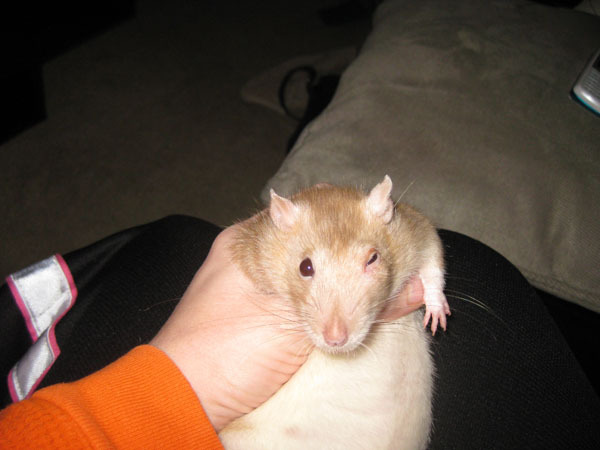 swollen eye, rat
Question
swollen eye, Lain
Hi Sandra,
My rat, Lain, ha
swollen eye, rat
Question
swollen eye, Lain
Hi Sandra,
My rat, Lain, ha
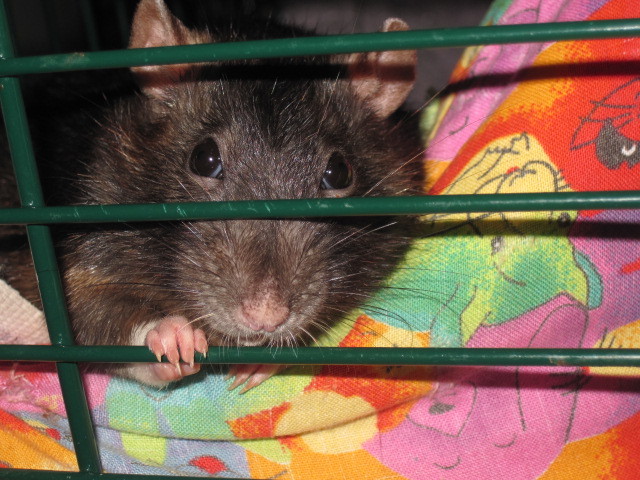 When to say goodbye?
Question
Ebony
My rat Ebony is 2 years and 8 months old
When to say goodbye?
Question
Ebony
My rat Ebony is 2 years and 8 months old
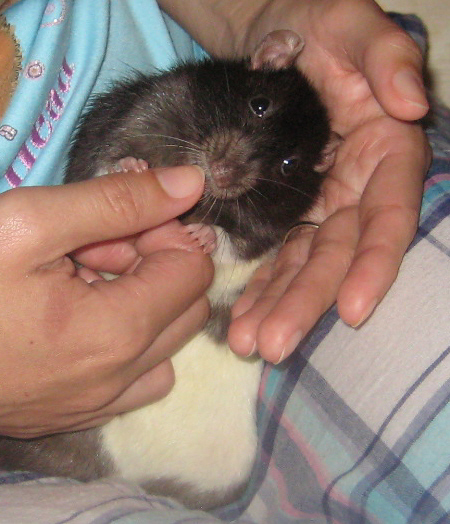 Suffering & guilt
QuestionQUESTION: Hi Sandra. This isnt a question, I ju
Suffering & guilt
QuestionQUESTION: Hi Sandra. This isnt a question, I ju
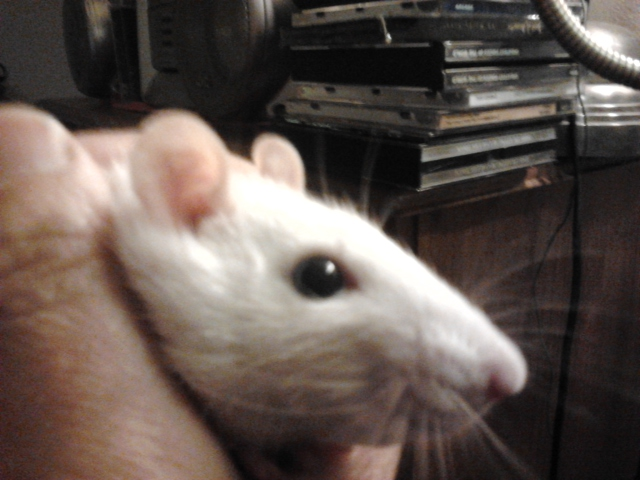 rat eye issue
Question
normal eye bad eye
Hi again nata
rat eye issue
Question
normal eye bad eye
Hi again nata
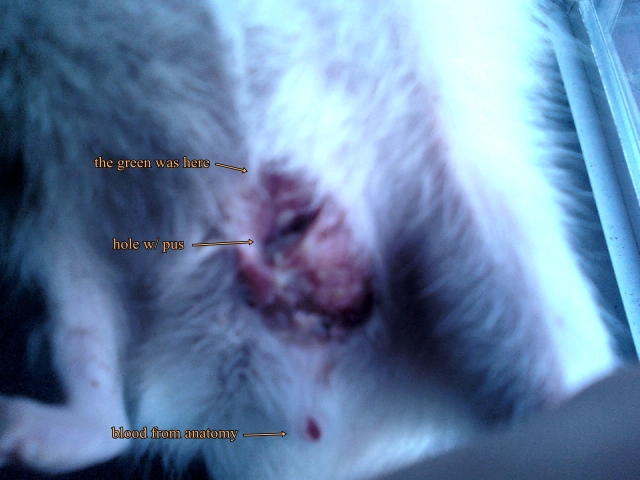 abcess
QuestionQUESTION: My rat, Poppy, broke out with an absc
abcess
QuestionQUESTION: My rat, Poppy, broke out with an absc